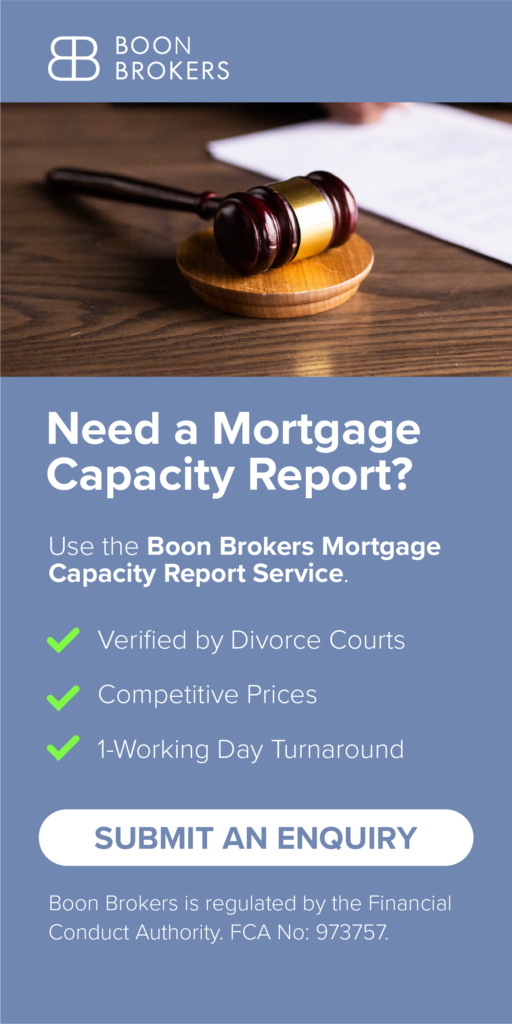What Does Divorce Mean for Your Mortgage?

If you are separated or anticipating a divorce you will likely be wondering about how it will impact your life going forward. This is especially the case if you have joint financial assets or an existing mortgage.
Divorces are normally described as ‘messy’ in such situations as it can be difficult for those involved and the courts to unpick financial situations and ascertain who should get what. Your divorce proceedings do not need to be unnecessarily problematic though and if you prepare correctly, you should find the process goes much smoother, no matter how acrimonious the situation is.
Let’s explore what a divorce means for your mortgage further.
How Can the Home be Divided in Divorce?
Before we delve into the ins and outs of mortgages and divorces, it is important to highlight no two divorces are the same. When a court evaluates your circumstances, they will look at the overall picture as well as the finer details. For example, the division of assets can be significantly different in divorces with children involved compared to those without children.
In this respect, there is no one size fits all judgement in divorce court proceedings.
There are however general guidelines that judges follow to achieve as fair an outcome as possible. If you and your ex-partner have a mortgage together you took during the relationship, it is likely the judge will want to split that asset equally between you.
If you have children, the judge may feel it is better for one party to keep the marital house and ask the other party to continue their mortgage payments. In cases where this is financially impossible, a judge may request one party buy the other out or the property is sold to give you both a clean break.
As you can see, these outcomes are wildly different and a court will want to have as much information to make the correct decision. Courts normally request mortgage capacity reports to find out exactly what is possible for either party regarding a mortgage.
How Does a Court Use a Mortgage Capacity Report?
A mortgage capacity report is compiled by an FCA authorised broker or financial adviser. It will show the court your current financial situation and outline what mortgage products are available to you.
It is important you hire someone who is experienced and competent to complete your mortgage capacity report as even a slight error can have dire consequences and put you in financial hardship. Boon Brokers offers a streamlined Mortgage Capacity Report service that has been verified for court use.
What Happens to a Joint Mortgage?
When the court has decided how to split your assets, you will be told what will happen with the mortgage you have in place.
In some cases, the mortgage will continue as normal except one party will no longer live at the property.
A judge may order one party to buy out the other party and take a mortgage in their name only or with a new partner.
In other cases, a judge may request both parties sell the property and repay the outstanding mortgage. Allocating any remaining funds to each party in what is known as a clean break divorce agreement.
Request a Mortgage Capacity Report
Get Started NowCan You Sell a House in Negative Equity?
If the mortgage amount outstanding is higher than the property value it can prove problematic in divorce proceedings.
Judges know mortgage companies do not lend on properties with negative equity so the default position of the court will be for the property be sold and parties involved take the financial loss.
You can sell a property in negative equity without any issue in terms of the selling process. You will just need to ensure you have the funds to clear the difference between the property value and the mortgage balance.
What Happens If I am Not on the Property Title Deeds?
If you are not on the property deeds, a judge will look at whether you have made a material contribution to the house.
For example, have you paid toward the mortgage or home improvements? If you have remained at home to look after children while your ex-partner worked, a judge will also take this into account and may deem the house to be a joint marital asset.
Once again, the devil is in the details. If you married someone who owned a property before the relationship and you did not contribute materially to the house, it is unlikely a judge will award you any interest in the property.
Once the judge has made their ruling you will need to contact land registry and complete the relevant documentation to reflect the outcome of the court judgement. This can involve removing a party from property deeds or adding a party if they were previously not listed on them.
What Our Clients Have To Say
Do I Need to Tell the Mortgage Lender about Divorce?
Most mortgage companies have stipulations in their contracts that tell you to contact them if anything material changes in your circumstances.
Even if a mortgage company has omitted such wording, it is best to notify your lender about a divorce regardless.
Mortgage lenders know how prevalent divorce is in society and they have also helped many couples navigate divorce in respect of their mortgages countless times.
Your lender will provide you practical steps to ensure your mortgage is kept up to date and make you aware of any problems that may arise.
Contrary to popular belief, a mortgage lender is not your enemy and will try and make the divorce in relation to your mortgage as smooth as possible. Being frank, they do not care about your personal situation providing you can meet your financial commitment to them. For lenders, your house is a business and the personal does not enter the equation.
Finally, remember a mortgage is a joint and severable liable debt. That means if one party to the mortgage does not make payments, a lender will expect the full payment from the other party. Do not think you can miss payments and get away with it on your mortgage, your lender will take a dim view of that approach and will chase you for the money or repossess the house.
Get Advice on Your Mortgage and Divorce
Mortgages and divorces are complicated, and it can be daunting trying to work out what you should and should not do. Speaking to a mortgage broker in the first instance will provide clarity and give you situation specific advice.
Boon Brokers is a Whole of Market Mortgage, Insurance and Equity Release Broker. Boon Brokers provides expert mortgage capacity reports for use in court proceedings and also make a full recommendation for mortgage products to meet your needs.
Contact Boon Brokers and discuss your mortgage and divorce today.
Gerard BoonB.A. (Hons), CeMAP, CeRER
Gerard is a co-founder and partner of Boon Brokers. Having studied many areas of financial services at the University of Leeds, and following completion of his CeMAP and CeRER qualifications, Gerard has acquired a vast knowledge of the mortgage, insurance and equity release industry.Related Articles





